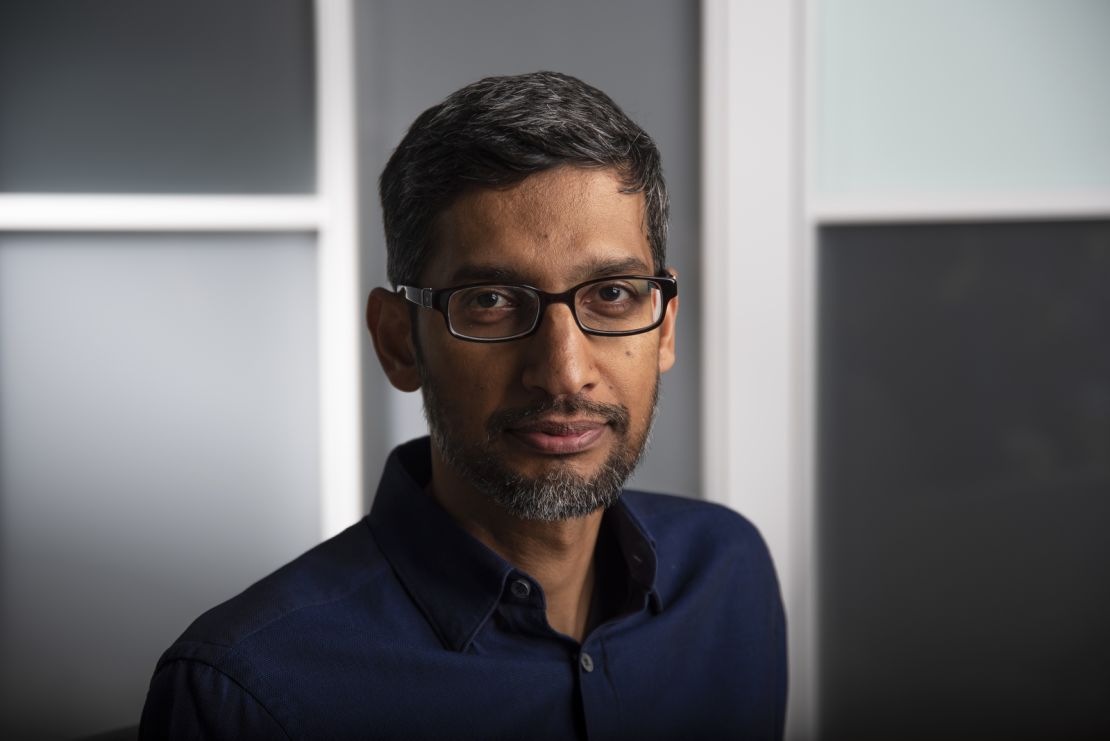In an exclusive interview with CNN Business on Thursday, Google (GOOG) CEO Sundar Pichai said he was not surprised by news of a possible US antitrust probe into his company, but cautioned against those who might push to regulate big tech businesses simply “for the sake of regulating.”
“We have gone through similar situations in Europe, so it’s not a surprise to us,” Pichai said in a wide-ranging interview with CNN Business’ Poppy Harlow, marking his first extensive comments since news broke in recent weeks of federal and Congressional probes into the market dominance of Google and several of its peers. “For some of the other companies, maybe the scrutiny is newer.”
Watch the full interview with Google CEO Sundar Pichai
CNN Business reported earlier this month that the Department of Justice is laying the foundation for a potential antitrust investigation of Google, with a possible focus on the company’s search business. The DOJ and Federal Trade Commission are said to be dividing up responsibility for oversight of Google, Facebook (FB), Apple (AAPL) and Amazon (AMZN).
Meanwhile, the House Judiciary Committee is launching a “top-to-bottom” antitrust probe of the tech industry, including those four companies, to examine their impact on local journalism, privacy and the competitive landscape for startups.

It’s a difficult but familiar position for Google to find itself in. Over the last decade, European Union regulators moved forward with antitrust probes of Google’s online search advertising business, shopping platform and Android dominance, resulting in three separate billion-dollar fines against the company. The FTC also pursued an antitrust investigation of Google — a case that eventually closed in 2013 in what was seen as a clear victory for Google.
That scrutiny has forced Google to rethink strategies, including potential acquisitions. Pichai told CNN Business “there have been times” that Google has looked at an acquisition and determined it may not be possible because of concerns about “too much concentration in a sector.”
Pichai said it’s “perfectly fine” for companies like Google to be scrutinized when they get big enough. “Scrutiny is right, and we will participate constructively in these discussions,” he said.
But he also stressed that “scale does offer many benefits.” Pichai noted that it’s Google’s size that allows it to invest in future technologies five to 10 years out without worrying about “short-term profits.” Perhaps for that reason, he said it’s bigger tech companies that are investing heavily in areas such as artificial intelligence and quantum computing.
Pichai also sounded a similar note to Facebook’s Mark Zuckerberg and Sheryl Sandberg, who have suggested that breaking up US tech companies could benefit businesses in China. Pichai, for his part, did not name China specifically.
“There are many countries around the world which aspire to be the next Silicon Valley, and they are supporting their companies too. So we have to balance both,” he said. “This doesn’t mean you don’t scrutinize large companies, but you have to balance it with the fact that you want big, successful companies as well.”
Even before the latest wave of antitrust investigation reports, there were calls to break up some of the tech companies from figures including Facebook cofounder Chris Hughes and Democatic senator and 2020 presidential candidate Elizabeth Warren.
In an aggressive plan released in March, Warren said she would appoint regulators to “unwind anti-competitive mergers,” including Google’s purchases of Waze, Nest and DoubleClick, an online advertising company it acquired in 2007.
“I think there needs to be healthy debate,” Pichai said when asked about Senator Warren’s rhetoric. “Any campaign has moments around that, but what matters to me is the healthy thoughtful conversations around it.”
Pichai also raised concerns about the fallout of knee-jerk regulation of the technology industry.
“I worry that if you regulate for the sake of regulating it, it has a lot of unintended consequences,” he said, focusing on the issue of artificial intelligence in particular. “It will have implications for our national security and … for other important areas of society. Having leadership ends up being really critical.”






















